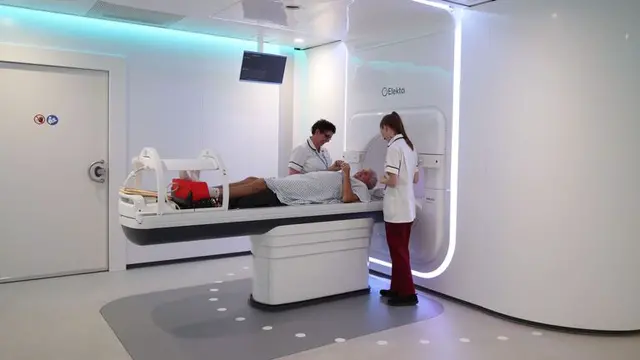Cancer experts are warning the NHS is "rationing" an innovative cancer treatment which could help deal with an expected surge in cases and "save lives".
In an open letter to NHS England and Health Secretary Matt Hancock, the experts are calling for stereotactic ablative radiotherapy (SABR) to be rolled out to all
cancer
centres.
They warn that failure to act would be a "tragic lost opportunity".
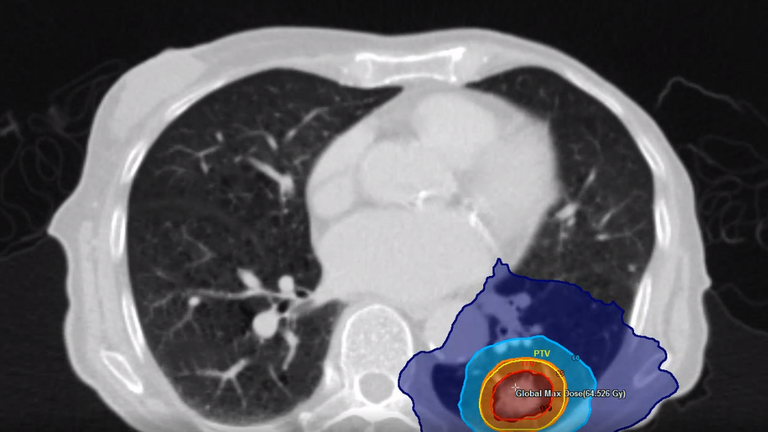
Image:A 4D scan of a tumour with the radiotherapy dose plan. Pic: James Cook University Hospital/Jim Daniel
Many cancer patients have had their treatments put on hold as hospitals deal with the
coronavirus
pandemic, while there are fears there could be a huge backlog of cancer cases in the coming weeks and months.
The letter said: "Cancer is generally a disease of older age and associated with risk factors such as smoking, alcohol and obesity, which result in additional co-morbidities.
"This is clearly a higher risk demographic who are being advised to self-isolate, causing anxiety about seeking help for cancer-related symptoms. Hence, there is a 'perfect storm' for delayed diagnosis and reduced access to services."
Recent analysis by University College London has estimated a 20% increase in cancer deaths in England over the next 12 months.
Researchers from the Institute of Cancer Research and Public Health England also found that a three-month delay to surgery across all stage one to three cancers is estimated to cause more than 4,700 additional deaths per year in England.
Around half of England’s radiotherapy centres are permitted to use SABR, which is usually used to treat some lung and prostate cancers.
But experts now say the treatment should be given as an option to some patients with other cancers who are unable to have surgery during the pandemic.
SABR requires fewer hospital visits than other treatments, meaning patients have less chance of contracting COVID-19, and studies suggest it is much less risky than surgery.
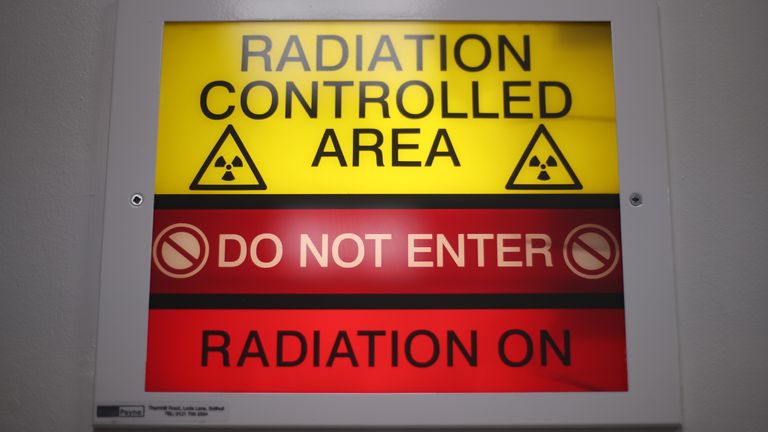
Image:There are plans to roll out SABR to all hospitals by 2022
A recent study in China found the mortality rate of patients who contracted COVID-19 after having surgery was more than 20%.
Dr Clive Peedell, a consultant clinical oncologist who wrote the letter along with Action Radiotherapy, says SABR is an effective alternative to surgery in many cases.
"We don't know from the clinical trials yet whether it’s definitely as effective as surgery, but it's likely to be very close," he told Sky News.
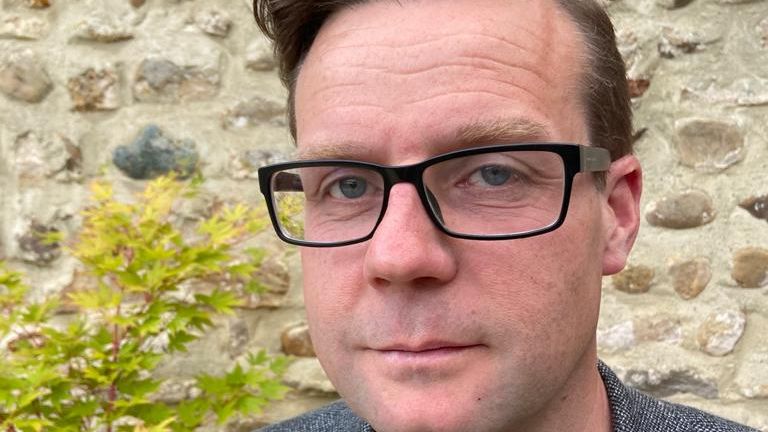
Image:Dr Clive Peedell says the treatment can give people another option
"So the patient will be told 'you can wait for surgery, but there's a risk your cancer would progress, and that can increase your mortality rate, or you can go for this stereotactic radiotherapy treatment'.
"It gives people an option, rather than just being stuck at home frightened that their cancer might progress."
He says virtually all cancer centres have the capability to deliver the treatment, and they could be up and running "in the next few months".
**:: Listen to the Daily podcast on **
Apple Podcasts
**, Google Podcasts
, Spotify
, Spreaker
**
"They will need some training, they will need some oversight, but we have a buddying system where sites that are less experienced can be buddied up with others that already use the treatment," he said.
There are current plans to bolster SABR services by 2022, but the experts say this must be brought forward - or cancer services could be overwhelmed.

Cancer patients 'helpless' amid fears more will die from delayed treatment than COVID-19
Pat Price, chair of Action Radiotherapy, said: "We were at capacity to start with so when we get more patients coming through, we will not be able to deal with it.
"We've got some real big solutions here and it's crazy that we've got machinery here that could solve some of the backlog and help improve survival, and yet we're not being allowed to use it. It's madness."
Not all cancer cases will be suitable for this treatment, but the experts believe it could help some who are currently unable to have surgery.
Martin Ducksbury, a grandfather of five, was diagnosed with a small kidney tumour in November.
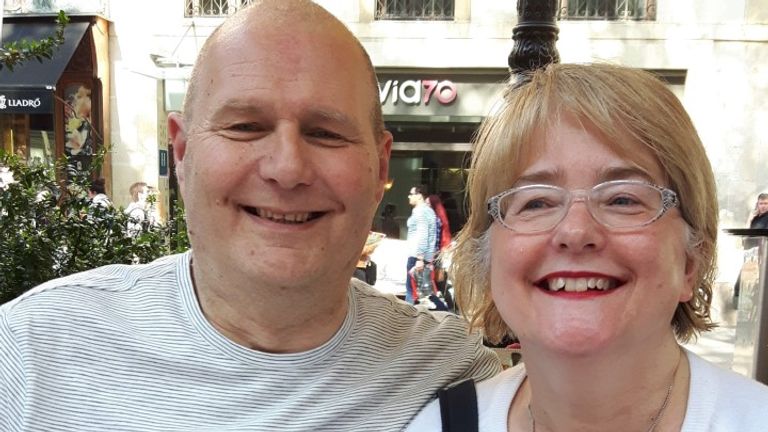
Image:Martin Ducksbury with his wife, Jackie
The 64-year-old was due to have an operation on 25 March, but it was cancelled the morning before - and he has now been told it could be another six to eight weeks before the surgery can be carried out safely.
"I've got this lung problem, a lung disease which is ongoing," he said.
"I would've had to go into intensive care after my operation and that was full of COVID patients.
"I spoke to [my consultant] and she said that they could do it if I wanted to, but if I got the virus then it would kill me because of the lung problem."
Tony O’Sullivan, a retired consultant paediatrician and co-chair of Keep Our NHS Public, also had his prostate cancer surgery cancelled after it was deemed "non-urgent".
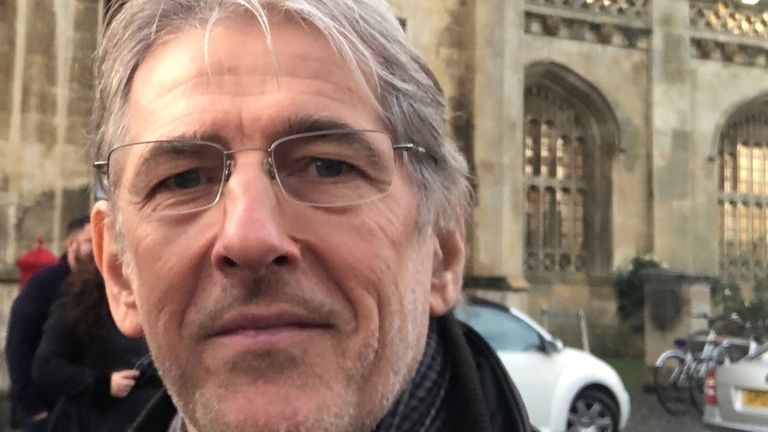
Image:Tony O'Sullivan is a retired consultant paediatrician
He had already packed his bags when he received a call saying the operation would not be going ahead.
"The longer the wait, the risk goes up," he said. "It's being in limbo that's the most worrying… I don't know if it could be months or potentially years."
An NHS spokesperson said: "The NHS provides advanced radiotherapy for lung cancer in 26 specialist centres across the country for those patients where it is clinically appropriate."
They said the NHS is aiming to deliver advanced radiotherapy services at all hospitals by March 2022, "despite dealing with an unprecedented global pandemic".
But Ms Price warned the issue is "not going to go away", adding: "This is actually about saving lives now."
 简体中文
简体中文

